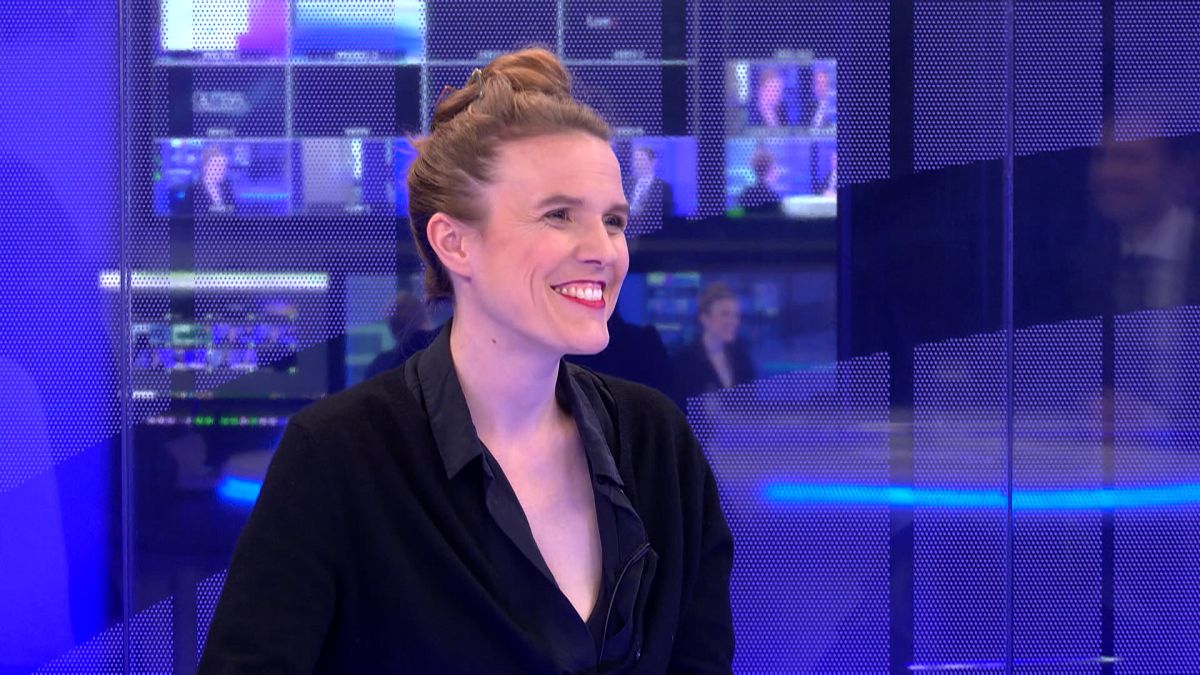Polls suggest Europe's Greens are a long way from repeating their successes of the 2019 election, facing the possibility of losing up to 20 seats.
Euronews' Brussels correspondent Grégoire Lory caught up with the Green's co-lead candidate, Terry Reintke, to discuss the current campaign and the challenges facing the ecological movement. He began by asking her about apparent voter disenchantment with the EU's Green Deal and farmers' outright opposition to it.
Helping citizens in green transition
"As green social justice is really at the centre of our political programme, so we want to make sure that any kind of climate measures are also going to be balanced out with, for example, supporting citizens in this transition," Reintke said
"The problems that they [farmers] have do not come from the Green Deal. The problems that they have is that basically with the agricultural model that we have today and also the agricultural policies, of the European Union, with the with the subsidies being distributed in the way they are, they are not having the income that they deserve."
"And for many of them, not the income that they actually need in order to live of what they are doing. So what we want to do is to make agriculture a key issue also in this election campaign, and to say the agricultural policy of the European Union has gone into a wrong direction in the past. Yes, we need to reform it, and we need to make sure that farmers and especially small farmers, get the support that they need."
€200 billion annual investment
In order to advance the transition to a green economy and counter challenges from China in clean energy technologies the Greens are proposing an annual investment of €200 billion in the sector.
"I can tell you one thing. I think if we don't invest now, and we have seen this recently with a study from the Potsdam Institute, the cost that we will have to bear already quite soon, not in 50 years, but already in the next years are much higher than the money we can already now invest into creating a green transformation," Reintke says.
"So for me, not only putting this on one generation, but for example, sustainably using debt and credit in order to finance this transition, which in the long run is going to make our lives cheaper because, for example, wind and solar are energies that make us not only that, make energy not only renewable, but that also make us less dependent on autocrats."
"So we have a lot of interest in doing that. I think that this is the right way to go down. And indeed, if we now have a renaissance of austerity in Europe, this is going to create a too tight space for us to make these investments. And this would be the exact wrong way to go."
Far-right challenge to Green Deal
The EU's climate goals have been targeted by the far-right in this campaign, as never before. They look set to make major gains in June's election and are likely to be a much more powerful force in the next parliament. So, does Reintke think the Green Deal can be saved?
"Well, I will put my energy into making it possible. And I still strongly believe that a very big majority of Europeans understand that it is in their own personal interest that we are ahead of fighting for climate neutrality, to keep this planet liveable for humans, but also in an economic interest that the European Union is not lagging behind China or the US, other global players when it comes to green industry and green economy.
"And this is the argument that I think convinces a lot of people alongside, and especially when I'm travelling and campaigning in Eastern and Central Europe with the security aspect, that the Green Deal is a crucial part of the puzzle of making Europe a more secure continent."
To find out more about what Terry Reintke had to say on other issues, including the EU's migration pact and the wars in Ukraine and Gaza, watch the Global Conversation interview in full.


